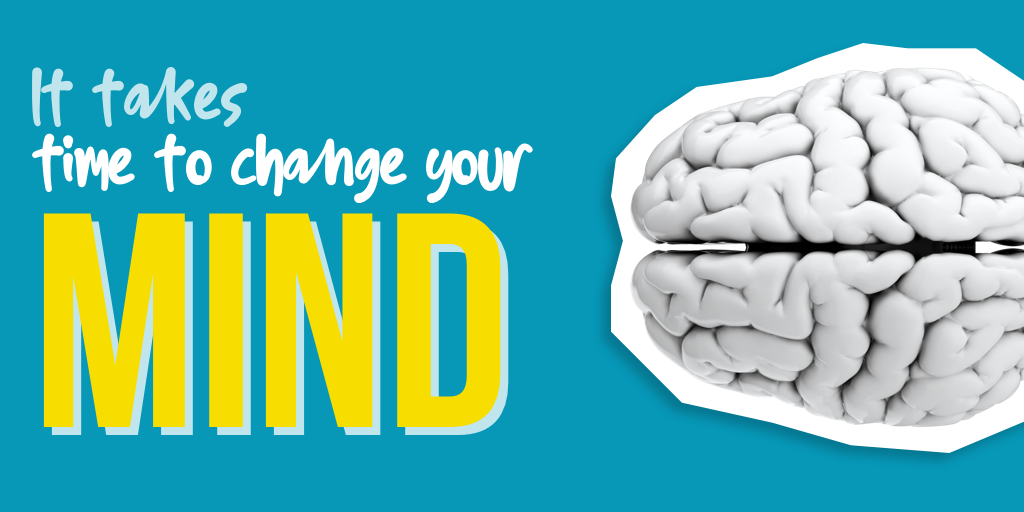One of my favorite sayings about behavior modification is that to modify someone else’s behavior, you first have to modify your own.
Which is not totally true, because we actually modify and adjust our behaviors every day in response to others, and they are just being, living their lives.
What I really mean by that when I say it, though, is that if you intend to modify someone’s behavior intentionally to get a new result, you will have to think things through, plan your actions, and then adjust your behavior accordingly.
Same when you want to modify your own.
Make sense?
Over the long term, to get what you want from life, you will have to modify your own behavior quite a lot, potentially.
Which means changing your mind.
On a LOT of things.
Replacing old, inefficient habits and behaviors with new ones that serve you better.
But here’s the kicker, your mind HATES change.
YOU may love change or hate it or be Switzerland about it, but your mind is quite happy exactly the way it is, thankyouverymuch, and will resent every attempt made to change it.
More, it will fight you every step of the way, and look for opportunities to backslide whenever possible.
This is normal.
Because while “the speed of thought” usually means fast, “the speed of changing thought” can be glacially slow.
It’s tricky, though, because sometimes it seems we can change just by willing it so.
Other times, though…not so much. It seems like we can’t change at all.
They say it takes 10,000 hours to master something. What if it takes 10,000 thoughts to change a mind?
I’m not saying it does. I really just pulled that number out of thin air.
However, it sometimes seems like it does.
What if, every time you thought a new thought, it got you 1/10,000th of the way towards making that thought a permanent part of your repertoire?
Remember flash cards?
Makes some sense now, huh? Not just for school (I have totally forgotten the African countries I memorized so carefully in third grade!), but for personal stuff, too.
And what about those thoughts you’re replacing?
What if, instead of “I hate myself,” you wanted to think (and feel), “I love myself”?
Well, it might take 10,000 repetitions of “I love myself,” to make it stick.
AND with the same intensity of feeling as when you think “I hate myself.”
AND that every time you think “I hate myself,” by habit (which you WILL), you replace it with an “I love myself.”
Again, it may not be 10,000 thoughts. It may be 1,000. Or 4,327. I don’t know. Neither do you. It’s different for every thought you might want to change.
Because it’s going to depend on how much of your identity you have built upon that thought. “I don’t like star-nosed shrews” might be an easier thought to change than “I suck and everyone hates me.”
Because disliking star-nosed shrews is probably not part of your identity. It’s unlikely that you’ve created a ton of behaviors around your dislike (and have gathered people around you who share that particular dislike) that you will also have to change. And the other, well, you probably have.
AND there is the intensity I mentioned earlier.
You probably don’t hate star-nosed shrews with much intensity (unless you had a particularly traumatic childhood incident involving a star-nosed shrew and your favorite candy, but I digress…), while believing that you suck and everyone hates you is a pretty intense thought to feel, and it engages a lot of the brain to have it.
And when you think about thoughts this way, it’s a wonder we ever change at all.
But we can.
We can consciously change our own thoughts with work and effort.
And we can change others’. (Ethically, please.)
We just have to start with ourselves, and understand the process to do it well, and to make it stick.
(NOTE: There are shortcuts to the process, like hypnosis, trauma, CBT, and so on. I would suggest that looking into hypnosis and CBT that you work with an expert, and not trust your brain or your training to just anyone, and that you do your best to avoid trauma.)







